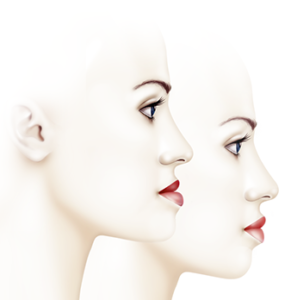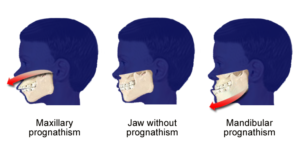Mandibular prognathism isn’t cute to look at in humans. Though bulldogs can live with those teeth without compromising their cuteness, it’s very unlike for human oral health. Otherwise known as underbite problem, mandibular prognathism is a common bite problem categorized as malocclusion.
Malocclusion is a condition that affects your bite. It causes speech and chewing problems which makes you terribly conscious as it triggers uneven teeth, protruded lower jaw and poor smile. There’s no doubt why mandibular prognathism requires immediate attention. Unlike overbite, mandibular prognathism or underbite problem affects your lower jaw. You can notice mandibular prognathism if your lower jaw overlaps or is way too forward than your upper jaw. Dentists identified this as malformation of your jawbone. Underbite is also misalignment of your teeth particularly the lower part.
This problem may not be as prevalent as overbite but it does exist. Based on statistics, there are 5-10 percent of American population who suffer from mandibular prognathism. The primary reason is hereditary. Other factors that cause it are environmental factors. This involves tongue thrusting, a unhealthy mouth breathing technique, poor eating habits and allergies. Individuals who have nasal congestion also tend to have underbite. The habit lets you breathe through your mouth which forces your tongue to rest against your lower jaw. When an underbite does not get proper treatment, it can result in extreme cases. This sets off an extended chin and facial abnormality.
An extreme underbite complicates your oral welfare. This starts from affecting your swallowing, chewing and speech. It tears down your enamel, too, once left ignored. This makes you susceptible to other forms of dental problems, including dental caries or cavities, TMJ or TMD disorder and periodontal disease.
The great news is that you can treat this problem. Just like other dental illnesses, you can improve your chance of survival when you spot this at an early stage. Early detection means better chance of avoiding complex dental procedures. Severe underbite problems requires dental surgery, like overbite. The therapy allows your dentist to move your jaw forward or backward. The methods involved in an oral surgery are intricate, complex and are of expensive price. Nevertheless, bear in mind that this surgical repair isn’t necessary. To avert this, you need to consider early treatment of underbite. There are various therapies for this. Several methods used are upper jaw expander, reverse-pull face mask and orthodontic retainers or dental braces.
Regardless if you have mild or severe underbite, it’s apt to seek your personal dentist. Dental professionals, like orthodontists, can educate you about the ways to prevent, resolve and address this problem. Although dental braces and oral surgery are the commonest forms of treating underbite, this doesn’t exceed dental care’s capability of fighting this problem. Dental care is a preventive technique that can help you avert and prevent bite problems from progressing. It has different dental strategies, including its most essential part: good oral hygiene.
Good oral hygiene is accessible at home and inside the office of your local dentist.
